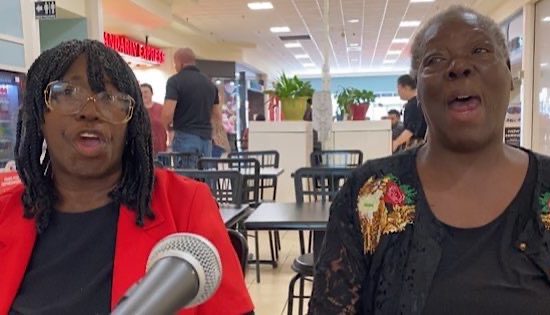 EDITORIAL – The large, ornate room was teeming with clamoring onlookers as the Congress conducted hearings regarding the greatest scandal in American political history—Watergate. The Senate intensely questioned members of President Richard Nixon’s senior staff as to the events surrounding the June 1972 break-in at the Democratic National Committee, headquartered in the modern, upscale Watergate office complex. The break-in orchestrated and ordered from none other than the president himself. Sitting before the Senate Watergate Committee on July 25, 1973 was John Ehrlichman, the president’s counsel and trusted confidant.
EDITORIAL – The large, ornate room was teeming with clamoring onlookers as the Congress conducted hearings regarding the greatest scandal in American political history—Watergate. The Senate intensely questioned members of President Richard Nixon’s senior staff as to the events surrounding the June 1972 break-in at the Democratic National Committee, headquartered in the modern, upscale Watergate office complex. The break-in orchestrated and ordered from none other than the president himself. Sitting before the Senate Watergate Committee on July 25, 1973 was John Ehrlichman, the president’s counsel and trusted confidant.
The floor was given to Herman Talmadge to ask Mr. Ehrlichman questions. Talmadge was the former Democratic governor and incumbent U.S. Senator from Georgia. He was the son of Eugene Talmadge, also a governor; having served four terms in Georgia’s highest office. At the Watergate hearing, Sen. Talmadge peered down at Ehrlichman, questioning him as to the legal justification for the president or his staff to order an illegal break-in. Sen. Talmadge queried to Ehrlichman, “Do you remember when we were in law school we studied a famous principle of law that came from England, and also is well known in this country, that no matter how humble a man’s cottage is, that even the King of England cannot enter without his consent?”
Ehrlichman shot back, with a furled brow and stiff jaw in his blunt and no-nonsense pacific coast accent, “I am afraid that [principle] has been considerably eroded over the years, has it not?” Not skipping a beat, in his thick yet soothing deep southern drawl, Talmadge orated to a stunned Ehrlichman, “Down in my country, we still think it is a pretty legitimate principle of law.” The crowd in the Senate committee room gave a roaring ovation to the humble Georgia lawyer (the video of the exchange can be found here.)
Eugene and Herman Talmadge, Carl Vinson, Tom Murphy, Lester Maddox, Wyche Fowler, Sam Nunn, Jimmy Carter, Zell Miller, Max Cleland, and John Lewis are “the real McCoys”—to employ the well understood colloquialism. Herman Talmadge, like many other great Georgia leaders of yesteryear, was born in rural Telfair County in the heart of South Georgia; the son of a self-proclaimed, “real dirt farmer”; a war hero; a country-bumpkin lawyer-legislator supported by the local courthouse crowd; a man who spoke truth to the overreach of federal power; and a member of the old Democratic Party—to which Georgians throughout the twentieth century expressed their fervent fealty.
Today in the twenty-first century, a new generation of Georgia’s great political dynasties rises to take on the great issues of our state and nation. Jason Carter, the grandson of former Georgia governor and 39th president of the United States, Jimmy Carter, is seeking to be the first Democratic Governor since 2003. Also, Michelle Nunn, the daughter of the great U.S. Sen. Sam Nunn, is running for the seat her father once held and being vacated by retiring incumbent Republican Saxby Chambliss of Moultrie.
To many observers, this is the best chance in years for Georgia Democrats to pick up the governorship and a U.S. Senate seat. For the few remaining old school southern Democrats this presents the opportunity to resist the Republican insurgency of recent decades and revalidate the beleaguered Georgia Democratic Party.
But there are serious concerns to be had of the two candidates being presented as the standard-bearers of the new southern Democratic Party. First, Jason Carter doesn’t seem to have yet adapted to being a statewide and national political figure. Carter made an appearance on a March 2014 segment of MSNBC’s Andrea Mitchell Reports where he not only looked unconfident, but balked at an important issue to many in of his core supporters—the Sons of Confederate Veterans license plate controversy.
To many in Georgia, particularly African Americans, the Confederate Veterans’ license plate offering by the Georgia Driver Services Department is offensive and there have been calls for its production to be discontinued—an exception being, incumbent Gov. Nathan Deal. The point, State Senator Carter must be willing to take a stand. Time and again, voters would rather a politician take a stand on an important issue rather than play the dead center—it makes one appear to be indecisive. Governors must be willing to make the tough call; Carter seems wholly unable or unwilling to do so.
Michelle Nunn has her own issues inherent to her campaign organization. Nunn has never held elected office, may appear to be too close to national Democrats, and is attempting to walk a tightrope between resisting the most controversial parts of the Affordable Care Act and embracing the provisions which most help Georgia. Albeit, both Carter and Nunn are conservative Democrats and the path to victory is to build a strong biracial coalition of white and black voters, while also grafting in swing voters from the Atlanta suburbs. Nunn must also be willing to prove to voters that she stands firmly on issues of public import. Both the nation and Georgia needs leaders more than ever. Speaking to both parties in our state, we do not need political standard-bearers placating to nonsense and hysteria to win the votes of a deeply divided electorate; Georgians need political leaders who will bring assertive leadership to help remedy our state’s deep-seated woes.
For the residents of South Georgia, there is yet another concern, which is not only limited to the Democratic candidates. Every major candidate for the Georgia gubernatorial and U.S. Senate races in both the Democratic and Republican Parties are from North Georgia or Atlanta—not a single candidate running is from the southern portion of the state. At midcentury, Georgia’s representation in the statehouse was rooted in the county-unit system. Each county, regardless of population, received a state representative in Atlanta. Twentieth century American political scientist V.O. Key referred to politics in Georgia as “the rule of the rustics”; those from the rural portions of the state dominated its politics. Today, that is simply no longer the case, with representation dependent upon population; presently, the densely populated areas dominate the rustics.
Much has changed since the era of the Solid South and protracted Democratic dominance in Dixie. Many often posit that if a Herman Talmadge, Lester Maddox, or Tom Murphy ran today, they’d do it as Republicans—conservative Republicans. This is disregarding the fundamental reason why one-party Democratic dominance occurred in the first place. After the Civil War, generations of southern political leaders not only repudiated federal power and advocated for states’ rights, but also renounced the partisan manifestation of Northern dominance—the Republican Party. In fact, it is interesting that so many southerners proudly coalesce around the party of Lincoln. That’s not to say that Lincoln’s place in American history is not profound, but for a region so entrenched in its land and the history of that land, to wholeheartedly accept the party who unilaterally debased the region’s political, economic, and social systems is hardly a mild irony.
Both Carter and Nunn are proving to be formidable contenders for their respective races. The two races at the top of the ticket in Georgia are proving to gainsay in the national media because of their significance. If both Carter and Nunn can galvanize wide support in a state which has leaned red since the mid-1990s, it would look well for national Democrats heading into the 2016 presidential contest. While we may never see one-party dominance again in same manner as the Democratic Party at midcentury, it would be intriguing to see a more competitive two-party system emerge in this state largely categorized as being amiable to Republican candidates.
Both Carter and Nunn are the gatekeepers for the future of this state’s politics. Albeit, they have their own hurdles to jump through in order to attain a Democratic statewide electoral victory deep in Dixie. What’s for sure is that both Carter and Nunn are a far cry from their namesakes, and a far cry from the likes of the humble Herman Talmadge facing down the illicit activities of an out of control executive branch—lest not we even get into the Republicans at the top of this election cycle’s ticket. With Carter and Nunn, the Democratic Party of Georgia may resurge to prominence or go the way of the Talmadges and the like, consigned to the annals of our history.











